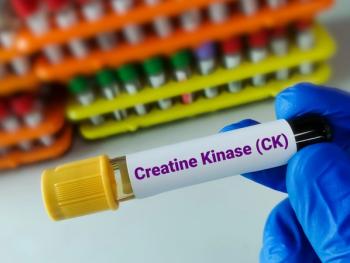
Solid Bioscience Reports Positive Early Data from Duchenne Gene Therapy Trial
The company says it plans to file for accelerated approval later this year.
Solid Biosciences reported recent positive data in developing their gene therapy candidate SGT-003. The phase 1/2 INSPIRE DUCHENNE trial results demonstrated that SGT-003 showed an average microdystrophin expression of 110% in the first three participants.
In a
Duchenne muscular dystrophy is a genetic condition that leads to muscle degeneration, primarily impacting boys. Symptoms typically show between the ages of 3 and 5. The severity of symptoms largely depends on the amount of dystrophin present in the muscle Generally, the lower the dystrophin, the more severe the phenotype is.
Duchenne is a progressive and irreversible disease that is ultimately fatal. It has an X-linked recessive inheritance pattern and is passed on by the mother. According to the National Organization for Rare Disorders, it affects approximately 1 in 3,500 male births worldwide.
Solid intends to request an accelerated approval regulatory pathway for SGT-003 toward the end of this year. The company plans to activate additional trial sites by the end of 2025. Should the FDA approve SGT-003, the gene therapy would compete against Sarepta Therapeutic’s Elevidys (delandistrogene moxeparvovec-rokl), which the FDA initially approved in June 2023 and then expanded that approval in June 2024. The FDA's expanded approval
Solid’s SGT-003 gene therapy relies on an adeno-associated virus vector-based delivery system with an engineered microdystrophin gene payload. The viral capsid is designed to preferentially bind integrin receptors in cardiac and skeletal muscle tissue, avoiding other organs of the body. The vector delivers a functional form of dystrophin protein containing the neuronal nitric oxide synthase (nNOS) domain in skeletal and cardiac muscles.
nNOS is an enzyme linked to the dystrophin-glycoprotein complex, playing a role in cell signaling. It is thought to control blood flow to skeletal muscles during exercise and is known to be dysfunctional in individuals with DMD.
The positive initial clinical data comes from a 90-day biopsy from three enrolled patients. The tissue samples showed an average microdystrophin expression of 110% and significant improvements in multiple muscle health biomarkers, including muscle integrity. Muscle injury and stress were also reduced, including decreased creatine kinase, aspartate aminotransferase, and alanine transaminase.
Early signals of potential cardiac benefits were observed, including improvements in cardiac function and reductions in serum cardiac high-sensitivity troponin I levels. High-sensitivity cardiac troponin I is a diagnostic biomarker used to detect myocardial injury, such as that caused by a heart attack
SGT-003 was well-tolerated in the first six participants with no serious adverse events or suspected unexpected serious adverse reactions—no evidence of thrombotic microangiopathy, atypical hemolytic uremic syndrome, or hemolysis. No hospitalizations or use of additional immunomodulatory agents to manage adverse events were required. The adverse events noted following the infusion of SGT-003 were consistent with those seen in AAV gene therapy, such as nausea, vomiting, fever and temporary drops in platelet counts in certain participants.
The Phase 1/2 INSPIRE DUCHENNE trial (
Craig McDonald, M.D., chair of the Department of Physical Medicine & Rehabilitation at UC Davis Health and investigator in the INSPIRE DUCHENNE trial, stated in the news release
that in the “landscape of genetic therapies for Duchenne, individual microdystrophin constructs likely have unique efficacy and safety profiles. I am very encouraged by the initial results reported today and look forward to seeing additional data and longer-term functional data that I believe will further inform our understanding of the role that the nNOS binding domain, which is unique to SGT-003, may play in improving clinical outcomes.”
Newsletter
Get the latest industry news, event updates, and more from Managed healthcare Executive.























